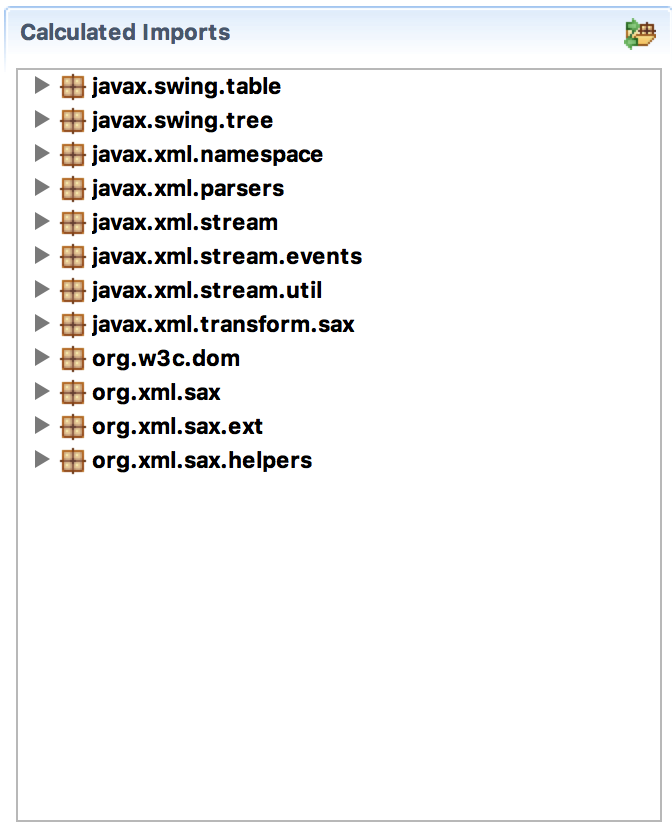This website and its associated repositories, are deprecated and no longer supported by the OSGi Alliance. Please visit https://enroute.osgi.org for the latest supported version of OSGi enRoute.
This enRoute v2 archive site is kept for those who do not intend to use the latest version of OSGi enRoute. If you are new to OSGi enRoute, then please start with the latest OSGi enRoute.
The bnd tool contains a nifty feature that it inherited from old school C. In those days, the link phase searched for missing symbols in libraries and automatically included those functions from the library in your code. This was called static linking. Neil Bartlett wrote a blog about the subject.
The -conditionalpackage instruction performs a similar function for packages. It analyzes the bundle and it will then look on the -buildpath for the missing packages. It then adds those packages and analyzes again recursively. There is a caveat that sometimes packages are not sufficient, sometimes there are resources that must be included as well. We’ll discuss those issues later.
This is of course very useful, in our wrapper bundle we only want to import from the JVM. All other dependencies should be included. Since we can ignore java.* packages (they are always coming from the JVM), we need to filter out any packages that might come from the VM. All other packages can be copied from the -buildpath. We can exclude packages with the ! operator. So we first exclude the packages from the JVM and then we use the wildcard (‘*’) to include the remaining packages from the -buildpath. This looks as follows.
-conditionalpackage: \
!javax.*, \
!org.xml.*, \
!org.w3c.*, \
!org.ietf.jgss, \
!org.omg.*, \
*
Since our -buildpath looked like:
-buildpath: \
org.jvnet.hudson.dom4j__dom4j;version=1.6.1.hudson-3,\
net.java.dev.msv.xsdlib;version=2013.6.1
We should now have included the com.sun packages. We can verify this by by opening the osgi.enroute.examples.wrapping.dom4j.adapter.jar file from the generated directory in the JAR Editor. At the end of the Print tab there is a list of contents and this now contains the com.sun packages.
...
com
com/sun
com/sun/msv
com/sun/msv/datatype
DatabindableDatatype.class
ErrorDatatypeLibrary.class
SerializationContext.class
com/sun/msv/datatype/xsd
AnyURIType.class
...
We will have to repeat this process for each package that is not included in the the JVM. For Java 1.8, the following -buildpath had no more extraneous imports:
-buildpath: \
org.jvnet.hudson.dom4j__dom4j;version=1.6.1.hudson-3,\
xmlpull__xmlpull;version=1.1.3.4d_b4_min,\
pull-parser__pull-parser;version=2.1.10,\
jaxen;version=1.1.6,\
net.java.dev.msv.xsdlib;version=2013.6.1,\
relaxngDatatype__relaxngDatatype;version=20020414.0
We can look at the Contents tab of the bnd.bnd file to see if we covered all our inputs that do not originate from the JVM.

Looks good but are we ready now? Hmm. We have not looked at all what the consequences are of including the packages. In the next section we go through the potential options and hazards.